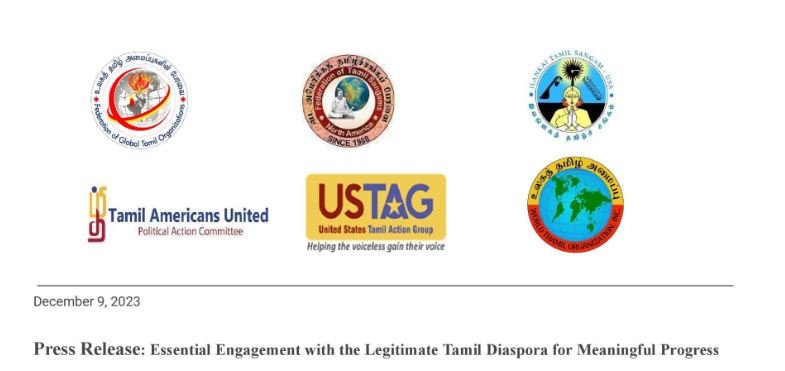As representatives of the Tamil Diaspora, we have learned through media sources about the recent initiative by the Sinhala-Buddhist clergy and southern civic society. These groups have begun discussions with a limited representation of the Tamil Diaspora. However, this engagement, primarily with the Global Tamil Forum (GTF), which now represents only a few individuals of the Tamil Diaspora, does not fully capture the unified voices of the organizations that collectively represent our community. It is important to note that the GTF no longer holds the representation it once did. Since its formation in September 2009 in Paris, France, the majority of the original 14 Tamil organizations, including all 10 from Europe, have dissociated from the GTF. Additionally, prominent organizations such as the British Tamil Forum, Australian Tamil Congress, and United States Tamil Action Group (USTAG), formerly known as USTPAC, have also left the GTF. As a result, any outcomes from this engagement lack the support of the majority of the Tamil Diaspora and thus, are of limited significance.
It is imperative to acknowledge that the key organizations within the Tamil Diaspora, which closely align with the views of the Tamil people in the North-East, have developed their positions through extensive dialogues. These discussions have involved civil society leaders, religious figures, families of the disappeared, and academic communities, including those from the Universities of Jaffna and Batticaloa. The principles widely accepted by the Tamil Civil Society and Diaspora include:
● An internationally conducted and monitored Referendum that allows people living in the north-eastern region of the island of Sri Lanka (Northern and Eastern province) prior to 1948 and their descendants to find a democratic, peaceful, permanent, and political solution that meets Tamils' aspirations.
● An interim International Protection Mechanism in the north-eastern region of the island.
● The Repeal of the Sixth Amendment to the Sri Lankan Constitution
● The referral of the situation in Sri Lanka to the International Criminal Court with respect to genocide, crimes against humanity and war crimes, and legal action against Sri Lanka before the International Court of Justice under the Convention on the Prevention and Punishment of the Crime of Genocide and the Convention against Torture.
We request the Sinhala-Buddhist clergy and southern civic society to acknowledge and embrace these conditions. Such a step would signify a significant shift towards reconciliation among all communities and contribute to finding a just and lasting resolution to the Tamil National

